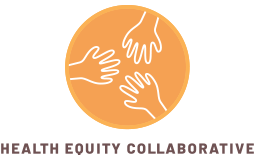08 Mar Fix 340B To Advance Health Equity for Minority Women
Women’s History Month is a time to celebrate how far women have come — and also to recognize the disparities they still face. In particular, Black women in America experience disproportionately poor health outcomes as a result of racism, sexism, and barriers to care.[1]
Yet Congress could root out many health inequities by fixing or eliminating policies with discriminatory effects. One place to start is the 340B drug pricing program.
Established in the nineties, 340B gives steep drug discounts to hospitals that serve low-income communities, while allowing them to charge insurers the retail price for those same drugs and keep the difference.[2] The idea was that these hospitals would reinvest the profit into their facilities, helping to provide care in underserved areas.
Unfortunately, this design didn’t work out as planned. Hospitals in the 340B program don’t have to disclose their financial records, nor are they actually obliged to reinvest profits to help patients from marginalized backgrounds. They can simply pocket earnings from the program, or put them into lavish developments at satellite clinics in wealthier neighborhoods.[3]
This abuse exacerbates racial health care inequities. The program was designed to increase access to care for low-income and vulnerable women, ensuring that they receive such services as mammograms and pap tests to screen for cancer, HIV support, and care during pregnancy, labor, and delivery. But currently, 340B more often hurts women’s access to these critical services, as profits are siphoned away from the hospitals that most need them.
For example, a 340B hospital group can take earnings from a facility with no maternity ward that serves a predominantly Black community, and use the funds to upgrade the maternity ward at a facility serving an affluent white community.[4] This is doing nothing to ameliorate the current situation: Maternal mortality is three to four times more likely among Black mothers than white mothers, and infant mortality is twice as high for children born to Black women.[5]
To properly address such health disparities, the new Congress should fix 340B so that it can do what lawmakers originally intended, and help provide equitable care to underserved communities.
[1] https://www.liebertpub.com/doi/10.1089/jwh.2020.8868
[2] https://www.nytimes.com/2022/09/24/health/bon-secours-mercy-health-profit-poor-neighborhood.html?smid=tw-nytimes&smtyp=cur
[3] https://www.nytimes.com/2022/09/24/health/bon-secours-mercy-health-profit-poor-neighborhood.html?smid=tw-nytimes&smtyp=cur
[4] https://www.nytimes.com/2022/09/24/health/bon-secours-mercy-health-profit-poor-neighborhood.html
[5] https://www.liebertpub.com/doi/10.1089/jwh.2020.8868


